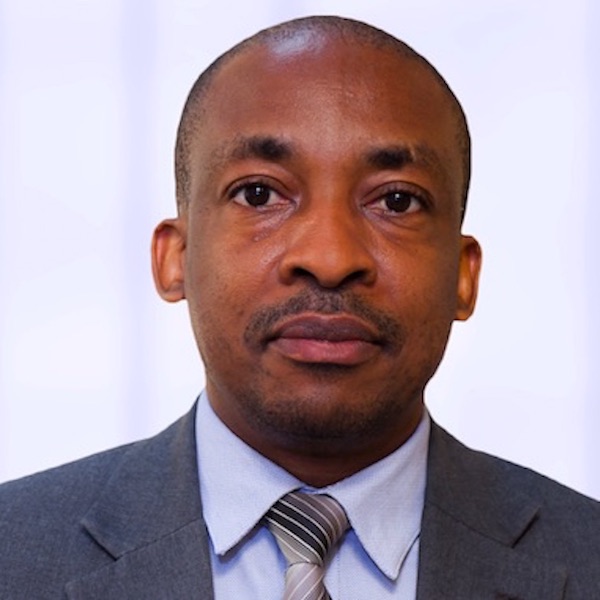
Dr. Balandya is a physician-scientist with expertise in biomedical sciences encompassing Physiology, Hematology, Immunology and Vaccinology. He obtained his Medical Degree at University of Dar-es-salaam, Tanzania. Doctorate Degree at Dartmouth College USA and Post-doctoral fellowship at Harvard Medical School USA. Following his return to Tanzania in 2014, he has researched on immunity and infections in Sickle Cell Disease (through the NIH-Fogarty/NHLBI/UCSF GloCal Fellowship) and is currently PI for the Sickle Pan African Research Consortium (SPARCO)-Tanzania a U01 grant funded by NHLBI with the goal to advance research as a strategy for improving health, advocacy and training for sickle cell disease in Tanzania as part of the larger Sub-Saharan Africa Network. He is also Co-Investigator in several ongoing health research and education capacity building projects. He is published and has presented his work at national and international platforms. Dr. Balandya is Member of the Organizing Committees for the MUHAS Scientific Conference and National NCD Conference. Dr. Balandya is Director of Postgraduate Studies at MUHAS Board Member of Young Scientists Tanzania (YST) a nation-wide Science Outreach Programme and consults with the National Institute for Medical Research (NIMR) and Tanzania Commission for Universities (TCU) on matters related to health research and education. He is a scientific reviewer for Tanzania Journal of Health Research (TJHR), Allergologia et Immunopathologia, Lancet Haematology, Journal of Community Genetics and PLOS ONE.
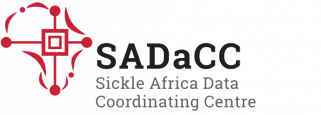
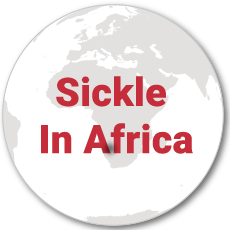
 Dr. Jonathan is a Master's student of Public Health at Muhimbili University of Health and Allied Science (MUHAS) and holds a Degree of Medicine from Kilimanjaro Christian Medical University College (KCMUCo). Her career objective is to demonstrate project management expertise with a focus on medical research both communicable and non-communicable diseases and the implementation of clinical studies with the goal of improving overall human health. She has experience in coordinating projects including management aspect, administration, financial management, budgeting and planning and monitoring and evaluation in ensuring project goals met. She is currently working as a Project Coordinator for the Sickle Pan African Research Consortium (SPARCO)-Tanzania at Sickle Cell Programme, Department of Haematology and Blood Transfusion, Muhimbili University of Health and Allied Science.
Dr. Jonathan is a Master's student of Public Health at Muhimbili University of Health and Allied Science (MUHAS) and holds a Degree of Medicine from Kilimanjaro Christian Medical University College (KCMUCo). Her career objective is to demonstrate project management expertise with a focus on medical research both communicable and non-communicable diseases and the implementation of clinical studies with the goal of improving overall human health. She has experience in coordinating projects including management aspect, administration, financial management, budgeting and planning and monitoring and evaluation in ensuring project goals met. She is currently working as a Project Coordinator for the Sickle Pan African Research Consortium (SPARCO)-Tanzania at Sickle Cell Programme, Department of Haematology and Blood Transfusion, Muhimbili University of Health and Allied Science.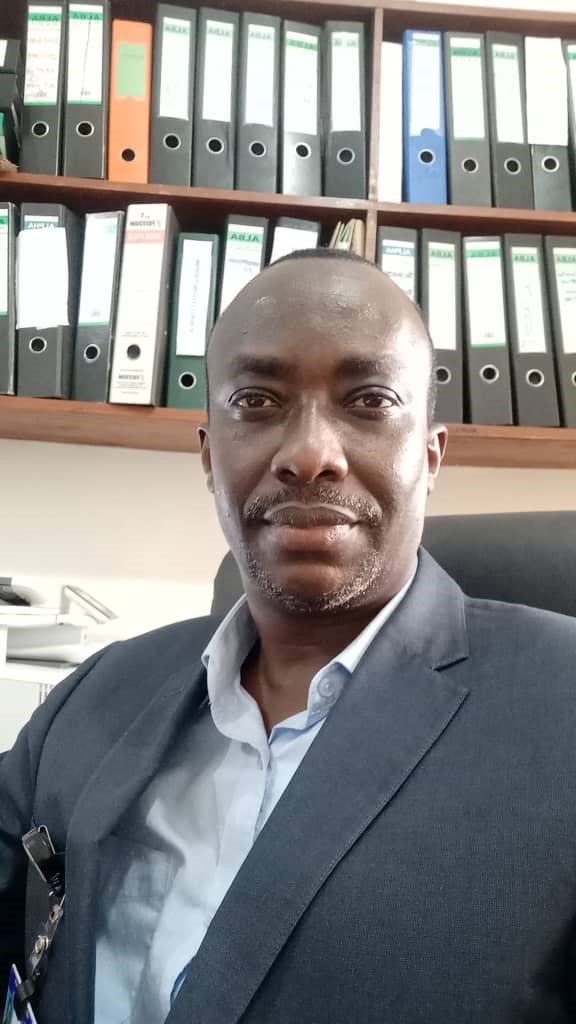 Dr. Ruggajo is a consultant nephrologist at Muhimbili National Hospital, a senior lecturer, head of department of Internal medicine and head of the renal research group at Muhimbili University of Health and Allied Science (MUHAS). He teaches and mentors medical and graduate students in their research projects. He holds PhD in Clinical Epidemiology (Outcomes) - Low birth weight and chronic kidney disease. Currently, he is a post-doc research fellow at Harvard School of Public Health, Boston, MA focusing on HIV and CKD. Has a solid background in medicine, nephrology and medical education for both undergraduate and graduate medical students. His competence areas include clinical epidemiology and research methods, study designs, patient registry development, data collection, management and analysis. In addition, he is capable of providing leadership in the grant application and grant management as well as building networks in research, healthcare and education. His research areas of interests encompass investigating the Developmental Origins of Health and Disease (DOHaD) model, exploring the association between low birth weight and future kidney disease (Brenner’s Hypothesis), Sickle Cell Nephropathy, Diabetic Kidney Disease, Cardio-Renal Diseases and the epidemiological exploration on the impact of double burden of Communicable and Non-Communicable Diseases in Tanzania and the sub-Saharan African region. Currently, he is working as a Research coordinator and Kidney Disease Study Lead for Sickle Pan African Research Consortium (SPARCO)-Tanzania, MUHAS.
Dr. Ruggajo is a consultant nephrologist at Muhimbili National Hospital, a senior lecturer, head of department of Internal medicine and head of the renal research group at Muhimbili University of Health and Allied Science (MUHAS). He teaches and mentors medical and graduate students in their research projects. He holds PhD in Clinical Epidemiology (Outcomes) - Low birth weight and chronic kidney disease. Currently, he is a post-doc research fellow at Harvard School of Public Health, Boston, MA focusing on HIV and CKD. Has a solid background in medicine, nephrology and medical education for both undergraduate and graduate medical students. His competence areas include clinical epidemiology and research methods, study designs, patient registry development, data collection, management and analysis. In addition, he is capable of providing leadership in the grant application and grant management as well as building networks in research, healthcare and education. His research areas of interests encompass investigating the Developmental Origins of Health and Disease (DOHaD) model, exploring the association between low birth weight and future kidney disease (Brenner’s Hypothesis), Sickle Cell Nephropathy, Diabetic Kidney Disease, Cardio-Renal Diseases and the epidemiological exploration on the impact of double burden of Communicable and Non-Communicable Diseases in Tanzania and the sub-Saharan African region. Currently, he is working as a Research coordinator and Kidney Disease Study Lead for Sickle Pan African Research Consortium (SPARCO)-Tanzania, MUHAS.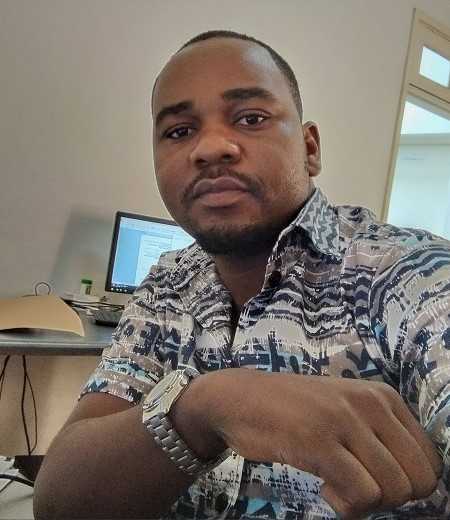 Daniel Kandonga has a background in Computer Science and health informatics from St. Augustine University, Ruaha University College, Tanzania, and his Masters of Health Informatics at the University of Dar es Salaam (UDSM). A winner of research SPARCo research fellow award 2020 for a project that focuses on the migration of existing Sickle Cell Disease Data from Muhimbili National Hospital into an Upgraded Database for Easy Usability in Patient Care and Clinical Research. Currently, He is working with the SPARCo Tanzania site as a Database Coordinator. He has more than 4 years of experience working on Data Management particularly on multisite data collection from SPARCo sites Tanzania and SickleinAfrica Consortium in general. In 2019 He attended Big data analytics course online and face-to-face training in Cape Town-University-South Africa as part of SPARCo consortium capacity building at the site level coordinated by SADaCC, where he learns more on advanced computational tools for analyzing large data. Prior to this, He has experience in Computer Programming, Networking, System Analysis, and design as well as the REDCap databases.
Daniel Kandonga has a background in Computer Science and health informatics from St. Augustine University, Ruaha University College, Tanzania, and his Masters of Health Informatics at the University of Dar es Salaam (UDSM). A winner of research SPARCo research fellow award 2020 for a project that focuses on the migration of existing Sickle Cell Disease Data from Muhimbili National Hospital into an Upgraded Database for Easy Usability in Patient Care and Clinical Research. Currently, He is working with the SPARCo Tanzania site as a Database Coordinator. He has more than 4 years of experience working on Data Management particularly on multisite data collection from SPARCo sites Tanzania and SickleinAfrica Consortium in general. In 2019 He attended Big data analytics course online and face-to-face training in Cape Town-University-South Africa as part of SPARCo consortium capacity building at the site level coordinated by SADaCC, where he learns more on advanced computational tools for analyzing large data. Prior to this, He has experience in Computer Programming, Networking, System Analysis, and design as well as the REDCap databases.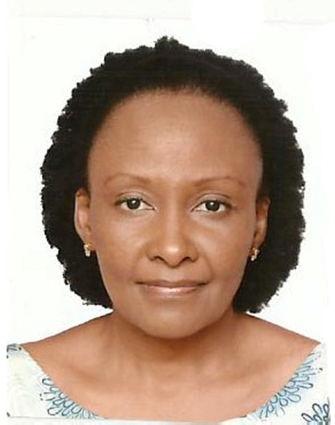 Dr. Irene Minja is a Senior lecturer in the department of Restorative Dentistry at the Muhimbili University of Health and Allied Sciences. She is a Doctor of Dental Surgery (DDS), and holds master of Philosophy in Dentistry (MPhilDent) and doctoral (PhD) degrees in community dentistry, specializing in oral health and quality of life of the elderly.
Dr. Irene Minja is a Senior lecturer in the department of Restorative Dentistry at the Muhimbili University of Health and Allied Sciences. She is a Doctor of Dental Surgery (DDS), and holds master of Philosophy in Dentistry (MPhilDent) and doctoral (PhD) degrees in community dentistry, specializing in oral health and quality of life of the elderly.
.jpg) Ms. Emanuela Marco holds a bachelor of science in nursing from Muhimbili University of Health and Allied Sciences. She currently works as data clerk for MUHAS Tanzania SPARCO project, as well as doing some clinical activities. Previously she worked as clinical research nurse under SickleGenAfrica project at MUHAS sickle cell program.
Ms. Emanuela Marco holds a bachelor of science in nursing from Muhimbili University of Health and Allied Sciences. She currently works as data clerk for MUHAS Tanzania SPARCO project, as well as doing some clinical activities. Previously she worked as clinical research nurse under SickleGenAfrica project at MUHAS sickle cell program. Dr. Chirande is a consultant Pediatric Hematologist and Oncologist at Muhimbili National Hospital (MNH) and Lecturer at Muhimbili University of Health and Allied Sciences (MUHAS), Dar-es-salaam, Tanzania. She supervises both postgraduate and undergraduate and provides clinical care to SCD and oncology patients at MNH. Her passion is to improve patient care through training and research. She is a member of International Society of Paediatric Oncology (SIOP). She did a fellowship training under the African Development Bank scholarship in Pediatric Hematology and Oncology at Makerere University, Uganda. During her fellowship, she realized the burden of SCD to health care services and individual families and its contribution to child mortality. In addition, she observed the difference made by early diagnosis and use of Hydroxyurea to the few families that could access such services which led her to desire for change and a lasting sense of responsibility towards SCD patients and their families. Her focus is on Newborn Screening (NBS) and early intervention including timely and consistent provision of Hydroxyurea to children with SCD. She is a Country Coordinator for the American Society of Hematology (ASH) Newborn Screening and Early Intervention Program aimed at proving the concept of screening and early intervention in Tanzanian settings and demonstrating reduction in morbidity and mortality. She is working with the team in Tanzania and other partners until proven cost-effective interventions such as newborn screening (NBS) and Hydroxyurea become a standard of care. Currently, she is a Newborn Screening (NBS) Coordinator and NBS implementation Study Lead for Sickle Pan-African Research Consortium (SPARCO) Tanzania.
Dr. Chirande is a consultant Pediatric Hematologist and Oncologist at Muhimbili National Hospital (MNH) and Lecturer at Muhimbili University of Health and Allied Sciences (MUHAS), Dar-es-salaam, Tanzania. She supervises both postgraduate and undergraduate and provides clinical care to SCD and oncology patients at MNH. Her passion is to improve patient care through training and research. She is a member of International Society of Paediatric Oncology (SIOP). She did a fellowship training under the African Development Bank scholarship in Pediatric Hematology and Oncology at Makerere University, Uganda. During her fellowship, she realized the burden of SCD to health care services and individual families and its contribution to child mortality. In addition, she observed the difference made by early diagnosis and use of Hydroxyurea to the few families that could access such services which led her to desire for change and a lasting sense of responsibility towards SCD patients and their families. Her focus is on Newborn Screening (NBS) and early intervention including timely and consistent provision of Hydroxyurea to children with SCD. She is a Country Coordinator for the American Society of Hematology (ASH) Newborn Screening and Early Intervention Program aimed at proving the concept of screening and early intervention in Tanzanian settings and demonstrating reduction in morbidity and mortality. She is working with the team in Tanzania and other partners until proven cost-effective interventions such as newborn screening (NBS) and Hydroxyurea become a standard of care. Currently, she is a Newborn Screening (NBS) Coordinator and NBS implementation Study Lead for Sickle Pan-African Research Consortium (SPARCO) Tanzania.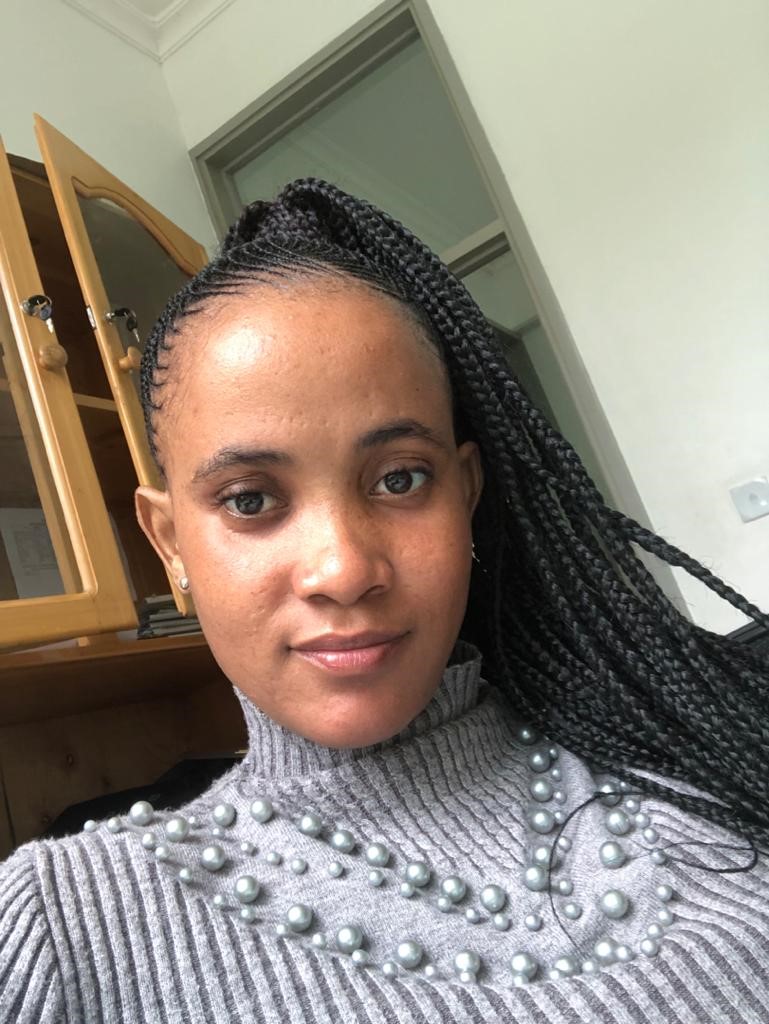 Ms. Winifrida holds a Bachelor’s Degree in Business Administration with marketing from Mzumbe University, Morogoro, Tanzania. She is working with Bugando Medical Center (BMC) as Account Clerk. She has experience in data management of both new patients and follow-up patients. She is also working as Satellite Data Clerk with Tanzania Sickle Pan Africa Research Consortium (SPARCO).
Ms. Winifrida holds a Bachelor’s Degree in Business Administration with marketing from Mzumbe University, Morogoro, Tanzania. She is working with Bugando Medical Center (BMC) as Account Clerk. She has experience in data management of both new patients and follow-up patients. She is also working as Satellite Data Clerk with Tanzania Sickle Pan Africa Research Consortium (SPARCO).